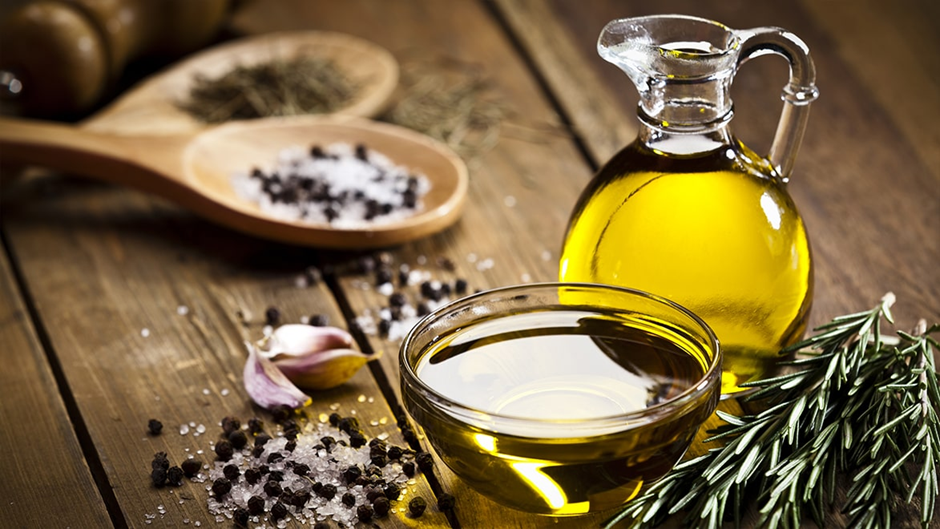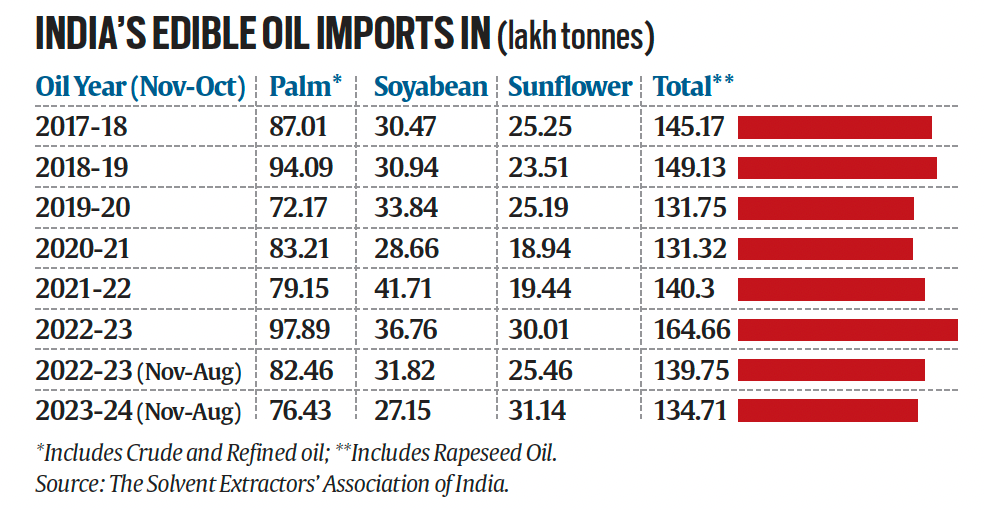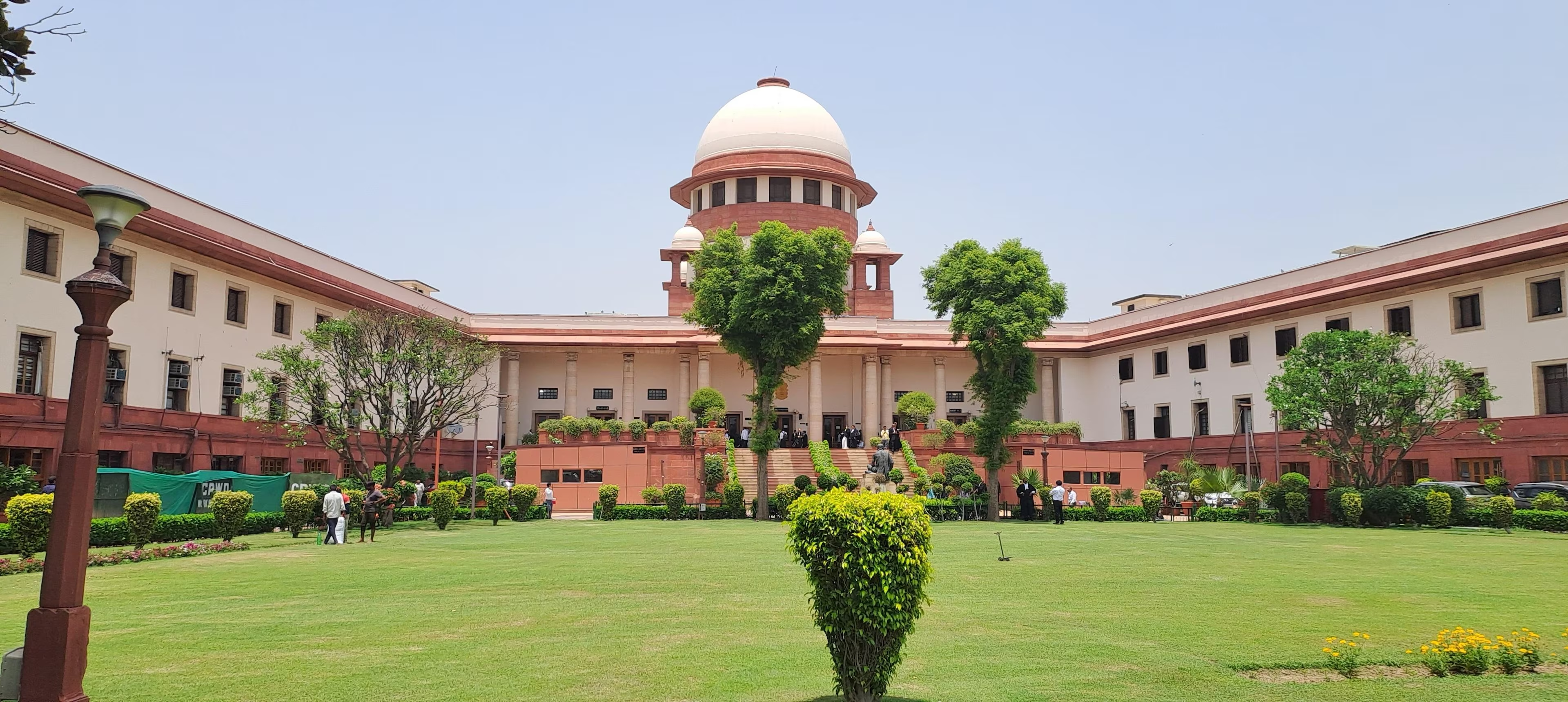- Courses
- GS Full Course 1 Year
- GS Full Course 2 Year
- GS Full Course 3 Year
- GS Full Course Till Selection
- CSAT
- 5 LAYERED ARJUNA Mentorship
- Public Administration Optional
- Online Program
- GS Recorded Course
- NCERT (Recorded 500+ Hours)
- Polity Recorded Course
- Geography Recorded Course
- Economy Recorded Course
- AMAC Recorded Course
- Modern India, Post Independence & World History
- Environment Recoded Course
- Governance Recoded Course
- Science & Tech. Recoded Course
- International Relations and Internal Security Recorded Course
- Disaster Management Module Course
- Ethics Recoded Course
- Essay Recoded Course
- Current Affairs Recoded Course
- ABOUT US
- OUR TOPPERS
- TEST SERIES
- FREE STUDY MATERIAL
- VIDEOS
- CONTACT US
Centre’s Pro-Farmer Shift in Edible Oils
Centre’s Pro-Farmer Shift in Edible Oils

The Indian government, led by Prime Minister Narendra Modi, has made changes to support oilseed farmers. Recently, they increased import taxes on edible oils to encourage local production and improve farmers' earnings.
Key Decisions:
- Import duty Increase: On September 13, 2024, the government raised the basic import duty on:
- Crude palm, soybean, and sunflower oils: From 0% to 20%
- Refined oils: From 12.5% to 32.5%
- Effective Tax Changes:
- Crude oils: Increased from 5.5% to 27.5%
- Refined oils: Increased from 13.75% to 35.75%
Context of the Changes
This is the first time since October 2021 that these import duties have been raised. The changes aim to protect local farmers by bringing taxes back to pre-October 2021 levels.
Economic Context
- Global Price Trends: The price index for vegetable oils peaked at 251.8 points in March 2022 due to the Ukraine conflict but has dropped to 136 points by August 2024.
- Policy Shift from Pro-Consumer to Pro-Producer: The government is moving towards a policy that favors producers to help local farmers deal with changing global prices. This decision also considers current consumer price inflation for edible oils, which was -0.86% in August 2024.
Support for Farmers:
Minimum Support Price (MSP) Approval: The government has allowed Maharashtra, Madhya Pradesh, Karnataka, and Telangana to buy soybeans at the MSP of ₹4,892 per quintal. This decision has positively influenced prices in key markets, pushing them closer to the MSP.
Trends in Edible Oil Imports:

- Sunflower Oil Surge: Edible oil imports in India reached a record high of 16.5 million tonnes in 2022-23. Crude sunflower oil imports have jumped to 3.1 million tonnes from November to August 2023-24, exceeding total imports from the previous year.
- Market Dynamics: Sunflower oil has recently become the second-largest imported edible oil, surpassing soybean oil due to pricing and better supply routes.
- Domestic Production vs. Imports: India’s domestic production of edible oils is about 10.3 million tonnes, much lower than imports. With the tax increase, the government expects imports to drop below 16 million tonnes this year.
Conclusion
The recent farmer-focused measures by the Indian government aim to stabilize the local edible oils market, improve farmer income, and ensure food security. These changes show a broader shift in policy to balance consumer needs with the urgent support for local agriculture amid global market changes.
Must Check: Best IAS Coaching In Delhi
UPSC Prelims Result 2024 Out: Expected Cut Off & Other Details, UPSC Prelims 2024 Answer with Explanation, Daily Prelims Quiz, Daily Current Affairs, MONTHLY CURRENT AFFAIRS TOTAL (CAT) MAGAZINE, Best IAS Coaching Institute in Karol Bagh, Best IAS Coaching Institute in Delhi, Daily Mains Question Answer Practice, ENSURE IAS UPSC Toppers, UPSC Toppers Marksheet, Previous Year Interview Questions, UPSC Syllabus




